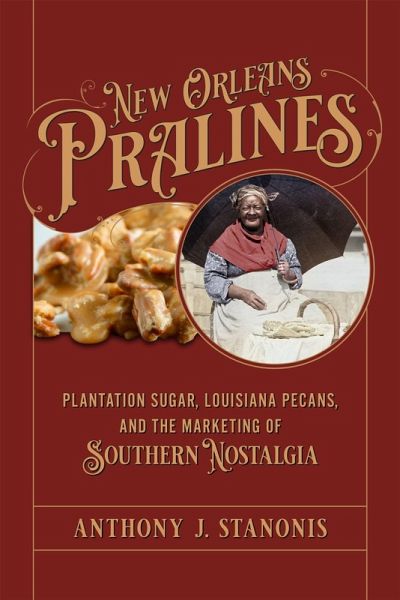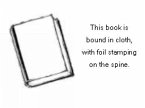"New Orleans Pralines: Plantation Sugar, Louisiana Pecans, and the Marketing of Southern Nostalgia follows the development of the praline, from its origins following the Civil War through its present-day status as an iconic symbol of New Orleans. Anthony Stanonis argues that pralines arrived in New Orleans with enslaved persons fleeing Louisiana plantations during the Civil War. Black women emerging from slavery were able to use pralines as an entrepreneurial commodity, to the point that white New Orleans authors soon coopted the image of the praline seller to present her as a mammy. This put a Louisiana twist on the southern mammy image while also inventing a noble, aristocratic history for the praline. Pralines played a major role in promoting local, Louisiana brown sugar in the face of industrialized sugar refining, the rise of the beet sugar industry in the Midwest/West (and Europe), and cheap sugar imports stemming from American expansion into Cuba, Hawaii, and the Philippines. Stanonis also explores the role of an enslaved horticulturist in domesticating the pecan in New Orleans in the 1840s, creating a grafted tree that would become the initial tree for pecan orchards after the 1876 Centennial Exposition in Philadelphia. By the early twentieth century, praline sellers increasingly replaced foraged pecans with cultivated pecans. The rise of cultivated, shelled, and cheaply-bought pecans allowed better-resourced white women to move into the praline-selling market in New Orleans, especially as tourism emerged as a key local industry after the 1910s. Indeed, the praline became central to marketing New Orleans from the 1920s through the 1980s. Conventions, for instance, often hired Black women to play the "praline mammy" role for out-of-towners, while stores sold pralines with mammy imagery in boxes designed to look like cotton bales. After World War II, pralines went national with items like praline-flavored ice cream (1950s) and praline liquor (1980s). Yet as the civil rights struggle persisted, the imagery of the praline mammy was recognized as offensive caricature, and the praline as a symbol of New Orleans slowly gave way to the king cake"--
Hinweis: Dieser Artikel kann nur an eine deutsche Lieferadresse ausgeliefert werden.
Hinweis: Dieser Artikel kann nur an eine deutsche Lieferadresse ausgeliefert werden.








